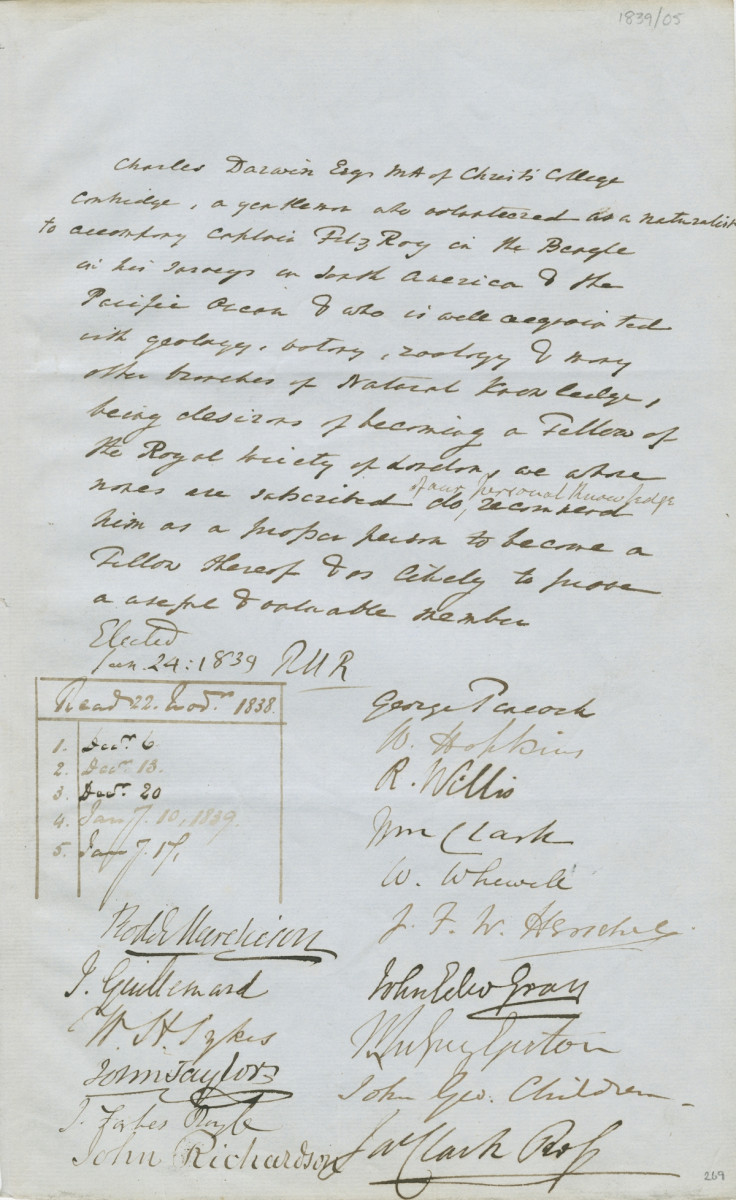Royal Society Marks Anniversary of Father of Evolution Charles Darwin Becoming Fellow

The Royal Society has today marked the 175<sup>th anniversary of Charles Darwin, the Father of Evolution, being made a Fellow.
A certificate showing his election certificate shows the date, 24 January 1839, on which Darwin was made a Fellow of the Royal Society, signed off by members of the Royal Society.
Speaking about the anniversary, Keith Moore, librarian at the Royal Society, said: "Charles Darwin was one of the greatest scientists of the 19th century or indeed of any age for his work on evolution by natural selection.
"What's wonderful about his becoming a Fellow of the Royal Society is that it came twenty years before the publication of On the Origin of Species (1859) while he was still sorting, distributing and thinking about his specimen collections from the Beagle voyage. Darwin's potential for scientific achievement was recognised."
Darwin became known as the Father of Evolution after he published On the Origin of Species, which showed that all species on Earth descended over time from common ancestors. Since then, he has been described as one of the most influential people in human history.

The letter confirming his Fellowship reads: "Charles Darwin Esquire, MA of Christ College Cambridge, a gentleman also interested in naturalisation, who accompanied captain Fitz Roy on the Beagle in his journey in South America and the Pacific Ocean and also is well acquainted with geology, botany, zoology and many other branches of natural knowledge ... We whose names are subscribed do recommend him ... to become a Fellow thereof and like to become a useful and valuable member."
Darwin's voyage on the Beagle was regarded as a waste of time by his father, Robert Darwin. The journey began at the end of December 1831 and lasted five years.
During the voyage, Darwin spent most of his time investigating geology and making natural history collections. He wrote extensive notes of what he found and part of the trip included a journey to the Galapagos Islands, where he further formulated his theory of evolution.
Darwin died on 19 April 1882 and was buried in Westminster Abbey. The Darwin Centre was opened at the Natural History Museum in London in September 2009 by fellow naturalist Sir David Attenborough.
© Copyright IBTimes 2025. All rights reserved.






















